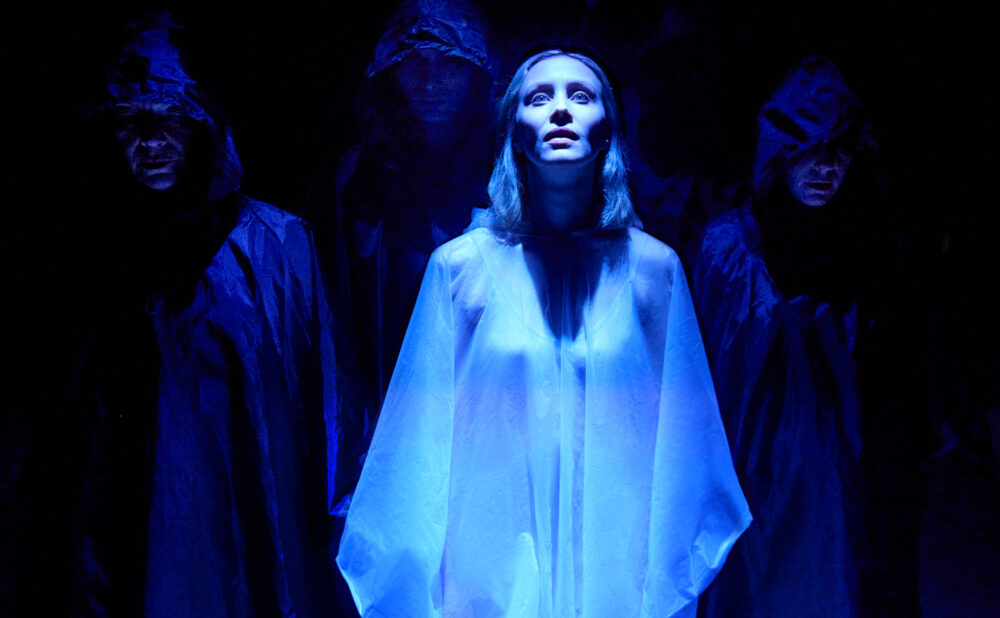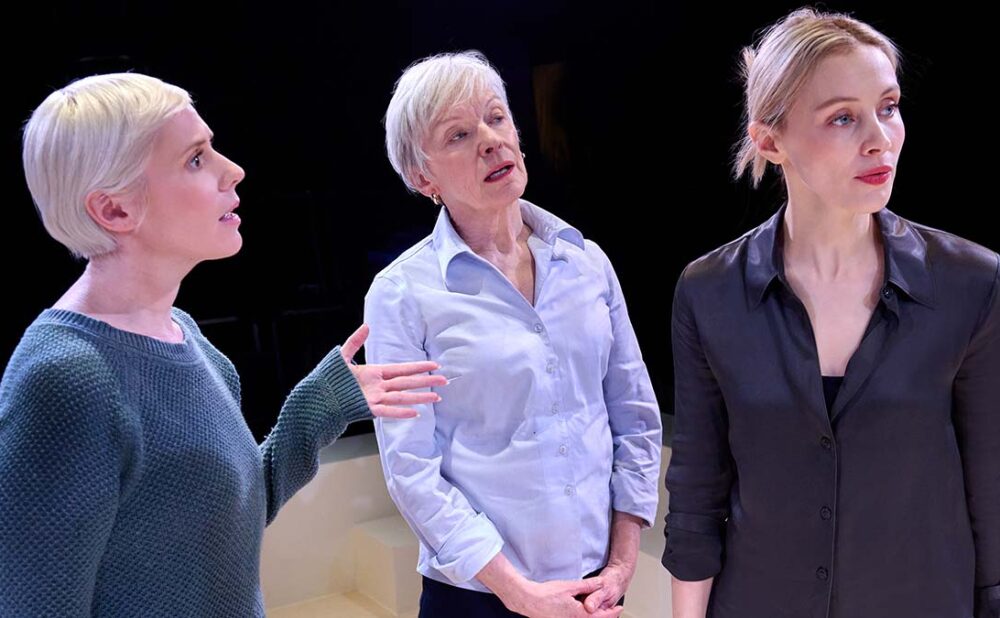Sarah Gadon makes stage debut in ‘Yerma,’ as Coal Mine Theatre rises from the ashes
Simon Stone’s modern adaptation of Federico García Lorca’s tragedy is sharp and often funny but has the potential to go even deeper.
What: Yerma
Where: Coal Mine Theatre, 2076 Danforth Ave.
When: Sun., Feb. 5 to Sun., March 5
Highlight: Daren A. Herbert’s incandescent performance
Rating: NNN (out of 5)
Why you should go: After a devastating fire last year, Coal Mine Theatre has risen from the ashes with Yerma, the company’s first production at its new East End facility. Daren A. Herbert steals the show in Simon Stone’s modern adaptation of Federico García Lorca’s tragedy of the same name about a childless woman whose desire to have a baby drives her to madness.
There’s a trifecta of debuts at Coal Mine Theatre. First, the East End company is unveiling its new facility after a devastating fire ripped through the theatre’s original home last year. Then, there’s Diana Bentley, the award-winning artist and co-founder of Coal Mine Theatre who is marking her directorial debut. And perhaps most notably, Canadian screen star Sarah Gadon is making her much-anticipated debut on stage.
The dramatic vehicle to mark the occasion is Yerma, Simon Stone’s modern adaptation of Federico García Lorca’s tragedy of the same name, which follows a childless woman (referred to as “Her” and played by Gadon) whose desire to bear a child compels her to unthinkable actions.
García Lorca’s original play, which premiered in 1934, is set in rural Spain. Stone’s adaptation, which was first performed at London’s Young Vic Theatre in 2016 and met with critical acclaim, smartly translates the action to the present, injecting the disquieting story with contemporary sensibilities.
At the outset, we meet Gadon’s character at age 33. Up until that point in her life, she’s been a career woman in every sense of the word. A successful lifestyle blogger, she’s never been particularly interested in having children; in her early 20s, she aborted a pregnancy with her ex, Victor (Johnathan Sousa).
But something changes in her mid 30s. Taking place over five years, we watch as her outlook shifts. More than anything in the world, she wants to have a child of her own. Hope, however, soon turns to desperation as her biological clock ticks relentlessly onward.
Even that desperation soon morphs into jealousy as she sees those around her — from her sister, Mary (Louise Lambert), to Victor — raise children of their own. Her desire to conceive turns into an obsession, driving her down a road to eventual psychosis. She rails against her mother (Martha Burns) but takes out most of her frustration on her partner, John (Daren A. Herbert), a successful businessman who’s often absent, spending weeks at a time overseas.
Yerma (meaning “barren”) is an ambitious work. The starring role, specifically, is titanic in scope, mining almost every single emotion charted throughout the character’s five-year journey.
Gadon plays her with raw fragility. She accentuates her desperation and, later, the raw anger borne out of the futility of her efforts.
But there’s more to the character. The loneliness, the resignation and, perhaps most of all, the jealousy. The woman weaponizes her blog, turning against John and Mary and using scathing words to express the acerbic bitterness she feels every time she sees a parent and their young child. Gadon has more to mine on this front, and I’ll be curious to see how she grows into the role over this production’s month-long run.
On opening night, it was Herbert, rather, who stole the show, delivering an incandescent performance as the woman’s partner, whose shared desire to have a child breaks into helplessness as her behaviour grows increasingly irrational.
Bentley’s production is spare, staged in the round on Kaitlin Hickey’s set, a square white pit that’s sunken into the ground, symbolic of the central character’s barrenness.
Though Stone’s adaptation was originally set in England, this version at Coal Mine Theatre is situated firmly in Toronto. It’s peppered with mentions of local neighbourhoods — even the odd Rob Ford reference. It seems this change in the locale is meant to bring added resonance to the tragedy, but it feels haphazardly done, with some of the vernacular and situations coming off as foreign.
Stone’s writing itself is sharp and often funny, with scenes driving forward at a clipped pace — jumping months in minutes, as we observe the woman’s desperation grow as time lurches forward.
Overall, however, I felt that Stone’s modern adaptation could go even further.
It’s unsettling how he paints the central character. She’s portrayed rather unsympathetically as if her emotional breakdown is almost entirely of her own doing. By contrast, in the original Yerma, García Lorca depicts a society where women are expected to have children. To fail to do so is to be shunned.
Nine decades later, it feels, in some ways, that the same expectation is still there — if not explicit, then tacit. That doesn’t come through in Stone’s Yerma — or at least in this production. It’s too focused on exploring how the woman confronts her own infertility. If only it could delve further into how we, as a society, navigate these sensitive issues as a whole.











